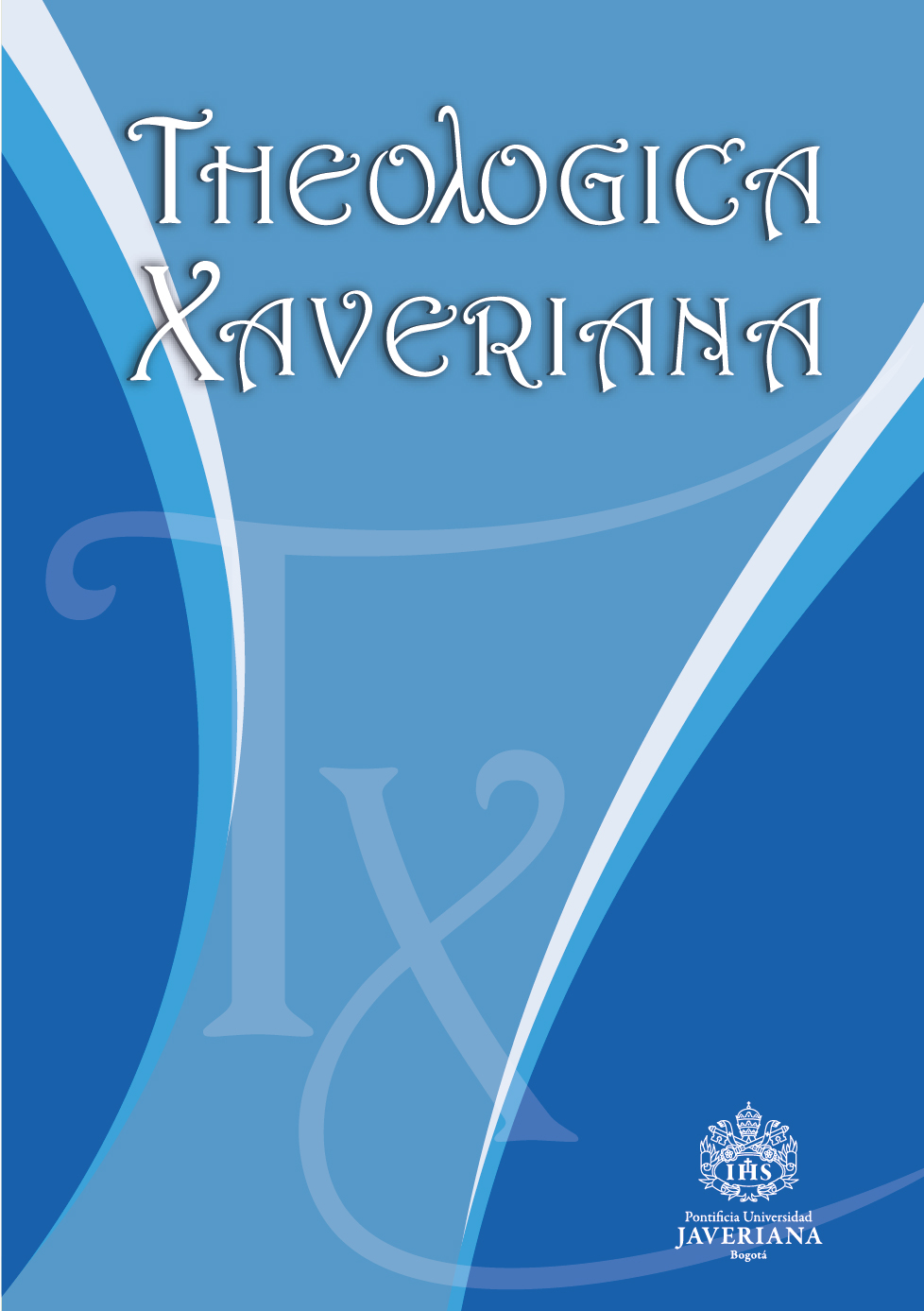Abstract
This paper examines the model of the Church in Eph 5:21-33. The study focuses on the dual metaphor of κεφαλή (head) and σῶμα (body) and its articulation with the concept of μυστήριον (mystery). Utilizing insights from ancient and modern rhetoric, as well as Cognitive Linguistic analysis, it argues that these metaphors convey a Christological and ethical model, emphasizing the unity and mutuality between Christ and the Church. The study reviews feminist and emancipatory interpretations that foreground hierarchical relationships, proposing instead a reading that fosters reciprocal relationships. These metaphors reveal a transformative vision of the Church as the fullness of Christ, reshaping cultural and social conventions.
Ådna, Jostein. “Die eheliche Liebesbeziehung als Analogie zu Christi Beziehung zur Kirche: Eine traditionsgeschichtliche Studie zu Epheser 5,21-33.” Zeitschrift für Theologie und Kirche 92/4 (1995): 434-465.
Aletti, Jean Noël. Essai sur l’ecclésiologie des lettres de Saint-Paul. Pendé: Gabalda, 2009.
Aletti, Jean Noël. “La eclesiología de las llamadas deuteropaulinas. Preguntas y propuestas.” Estudios Bíblicos 68/1 (2010): 53-71.
Aletti, Jean Noël. “Les difficulteés ecclésiologiques de la Lettre aux Éphésiens: de quelques suggestions.” Biblica 85/4 (2004): 457-474.
Aletti, Jean Noël. “Sagesse et mystère chez Paul. Réflexions sur le rapprochement de deux champs lexicographiques.” In La sagesse biblique: de l’Ancien au Nouveau Testament. Actes du 15e Congrès de l’Acfeb, edited by Jacques Trublet, 357–84. Paris: Du Cerf, 1995.
Aletti, Jean Noël. Saint Paul. Épître aux Éphésiens. Paris: Gabalda, 2001.
Armstrong, Karl L. “The Meaning of ὑποτάσσω in Ephesians 5.21-33: A Linguistic
Approach.” Journal of Greco-Roman Christianity and Judaism 13 (2017): 152-171.
Austin, John Langshaw. How to Do Things with Words. Oxford: Clarendon Press-Oxford University Press, 1962.
Bockmuehl, Markus N. A. Revelation and Mystery in Ancient Judaism and Pauline Christianity. Tubingen: Mohr Siebeck, 1990.
Caragounis, Chrys C. The Ephesian Mysterion. Lund: Gleerup, 1977.
De los Santos García, Edmundo. La novedad de la metáfora ΚΕΦΑΛΗ – ΣΩΜΑ en la Carta a los Efesios. Roma: Editrice Pontificia Università Gregoriana, 2000.
Egg, Markus. “Spatial Metaphor in the Pauline Epistles.” In Spatial Metaphors: Ancient Texts and Transformations, edited by Fabian Horn and Cilliers Breytenbach, 103-126. Berlin: Edition Topoi, 2016.
Esterhammer, Angela. Creating States: Studies in the Performative Language of John Milton and William Blake. Toronto: University of Toronto Press, 1994.
Gambadatoun, Yémadjro Fiacre Gilles. Connaître le mystere - Connaître la sagesse: La γνωσις et l’unité ecclésiale et cosmique en Éphésiens 3,1-13. Roma: Pontifical Biblical Institute, 2020.
Gil Arbiol, Carlos Javier. Escritos paulinos. Introducción al Estudio de la Biblia. Estella (Navarra): Verbo Divino, 2024.
Gil Arbiol, Carlos Javier. “La evolución de la imagen del cuerpo en la tradición paulina y sus consecuencias sociales y eclesiales”. Estudios Bíblicos 68/1 (2010): 73-105.
Ivarsson, Fredrik. “Christian Identity as True Masculinity.” In Exploring Early Christian Identity, edited by Bengt Holmberg, 159-171. Tübingen: Mohr Siebeck, 2008.
Köstenberger, Andreas J. “The Mystery of Christ and the Church: Head and Body, ‘One Flesh.’” Trinity Journal 12/1 (1991): 79-94.
Lausberg, Heinrich. Handbook of Literary Rhetoric: A Foundation for Literary Study. Leiden: Brill, 1998.
Lincoln, Andrew T. Ephesians. Dallas (TX): Word Books, 1990.
Low, Maggie. “An Egalitarian Marriage: Reading Ephesians 5:21-33 Intertextually with Genesis 2.” The Asia Journal of Theology 33/1 (2019): 3-19.
MacDonald, Margaret Y. “Colossians and Ephesians.” In T&T Clark Handbook to the Historical Paul, edited by Ryan S. Schellenberg and Heidi Wendt, 380-396. London: T&T Clark, 2022.
Mathewson, David L., and Elodie Ballantine Emig. Intermediate Greek Grammar: Syntax for Students of the New Testament. Grand Rapids (MI): Baker, 2016.
Metzger, Bruce Manning. A Textual Commentary on the Greek New Testament (4th ed.). Stuttgart: Deutsche Bibelgesellschaft; United Bible Societies, 1994.
Mollenkott, Virginia Ramey. “Emancipative Elements in Ephesians 5.21-33: Why Feminist Scholarship has (often) Left them Unmentioned, and Why they should be Emphasized”. In A Feminist Companion to the Deutero-Pauline Epistles, edited by Amy-Jill Levine and Marianne Blickenstaff, 37-58. London: Bloomsbury Academic, 2003.
Mouton, Elna. “Reimagining Ancient Household Ethos? On the Implied Rhetorical Effect of Ephesians 5:21-33.” Neotestamentica 48, no. 1 (2014): 163–85.
Mortara Garavelli, Bice. Manuale di retorica (7th ed.). Milan: Bompiani, 2003.
Penna, Romano. Il ‘Mysterion’ paolino. Brescia: Paideia, 1978.
Penna, Romano. La Lettera agli Efesini. Bologna: EDB, 1988.
Perelman, Chaïm, and L. Olbrechts-Tyteca. The New Rhetoric: A Treatise on Argumentation. Notre Dame (IN): University of Notre Dame Press, 1969.
Porter, Stanley E. Idioms of the Greek New Testament (2nd ed.). Sheffield: Sheffield Academic Press, 1996.
Quintilian. The Orator’s Education. Vol. III: Books 6-8. Edited and translated by Donald A. Russell. Cambridge (MA): Harvard University Press, 2002.
Reynier, Chantal. Évangile et mystère: les enjeux théologiques de l’Épître aux Éphésiens. Paris: Du Cerf, 1992.
Ricoeur, Paul. Interpretation Theory: Discourse and the Surplus of Meaning. Fort Worth (TX): Texas Christian University Press, 1976.
Schüssler Fiorenza, Elisabeth. Ephesians. Collegeville (MN): Liturgical Press, 2017.
Schüssler Fiorenza, Elisabeth. In Memory of Her: A Feminist Theological Reconstruction of Christian Origins. New York: Crossroad, 1983.
Schüssler Fiorenza, Elisabeth. “Paul and the Politics of Interpretation.” In Paul and Politics: Ekklesia, Israel, Imperium, Interpretation: Essays in Honor of Krister Stendahl, edited by Richard A. Horsley, 40-57. Harrisburg (PA): Trinity Press International, 2000.
Scott, James M. “Cosmopolitanism in Gal 3:28 and the Divine Performative Speech-Act of Paul’s Gospel.” Zeitschrift für die neutestamentliche Wissenschaft und die Kunde der älteren Kirche 112/2 (2021): 180-200.
Vrey, Aletta. “The Body Metaphor Reinforcing the Identity of the In-Group in Ephesians.” Neotestamentica 53/2 (2019): 375-393.

This work is licensed under a Creative Commons Attribution 4.0 International License.


